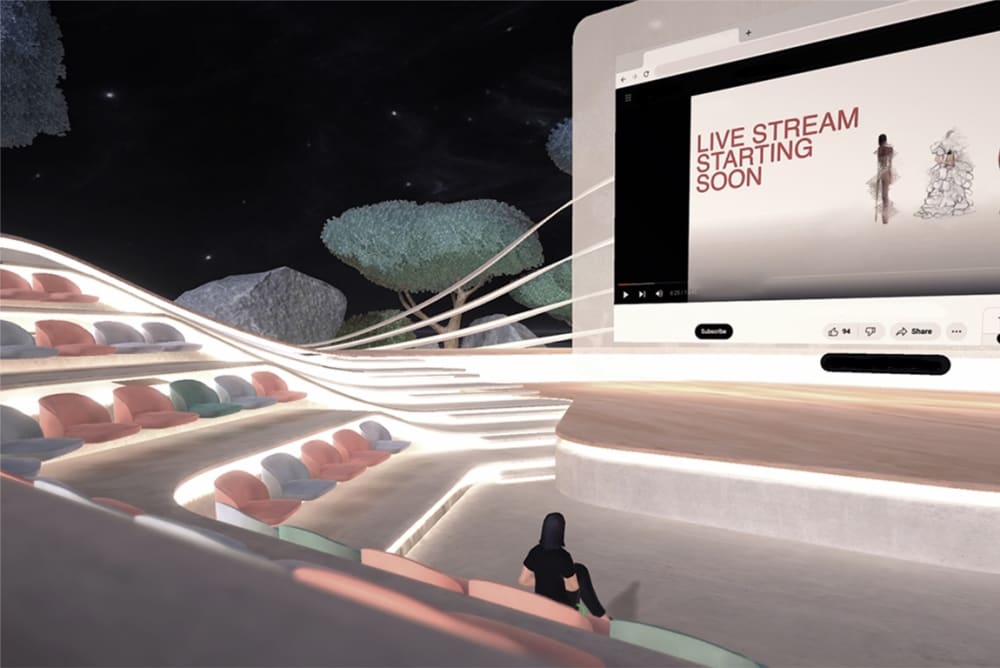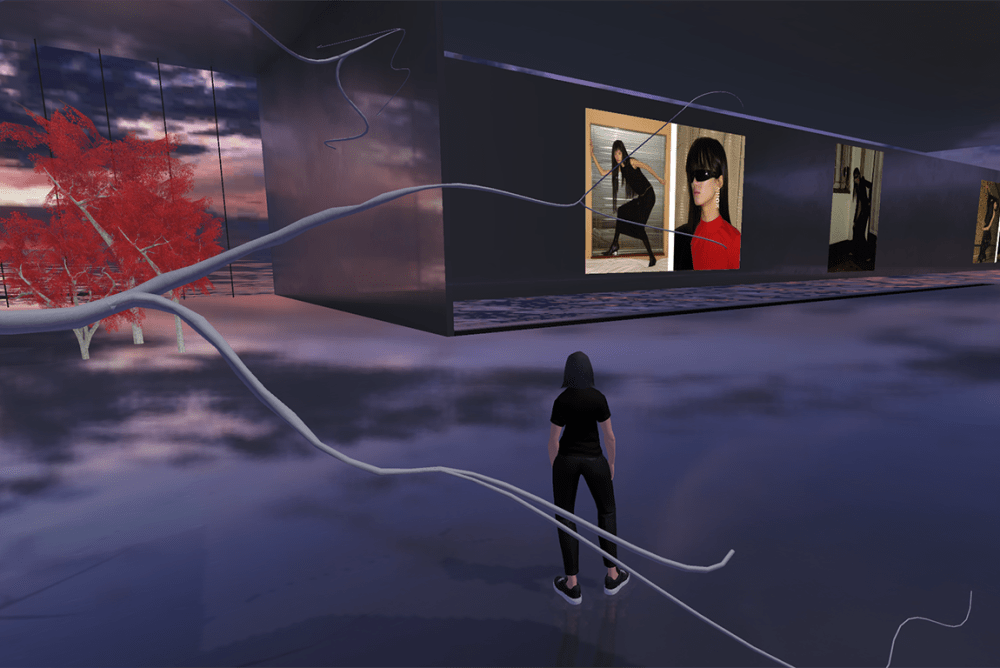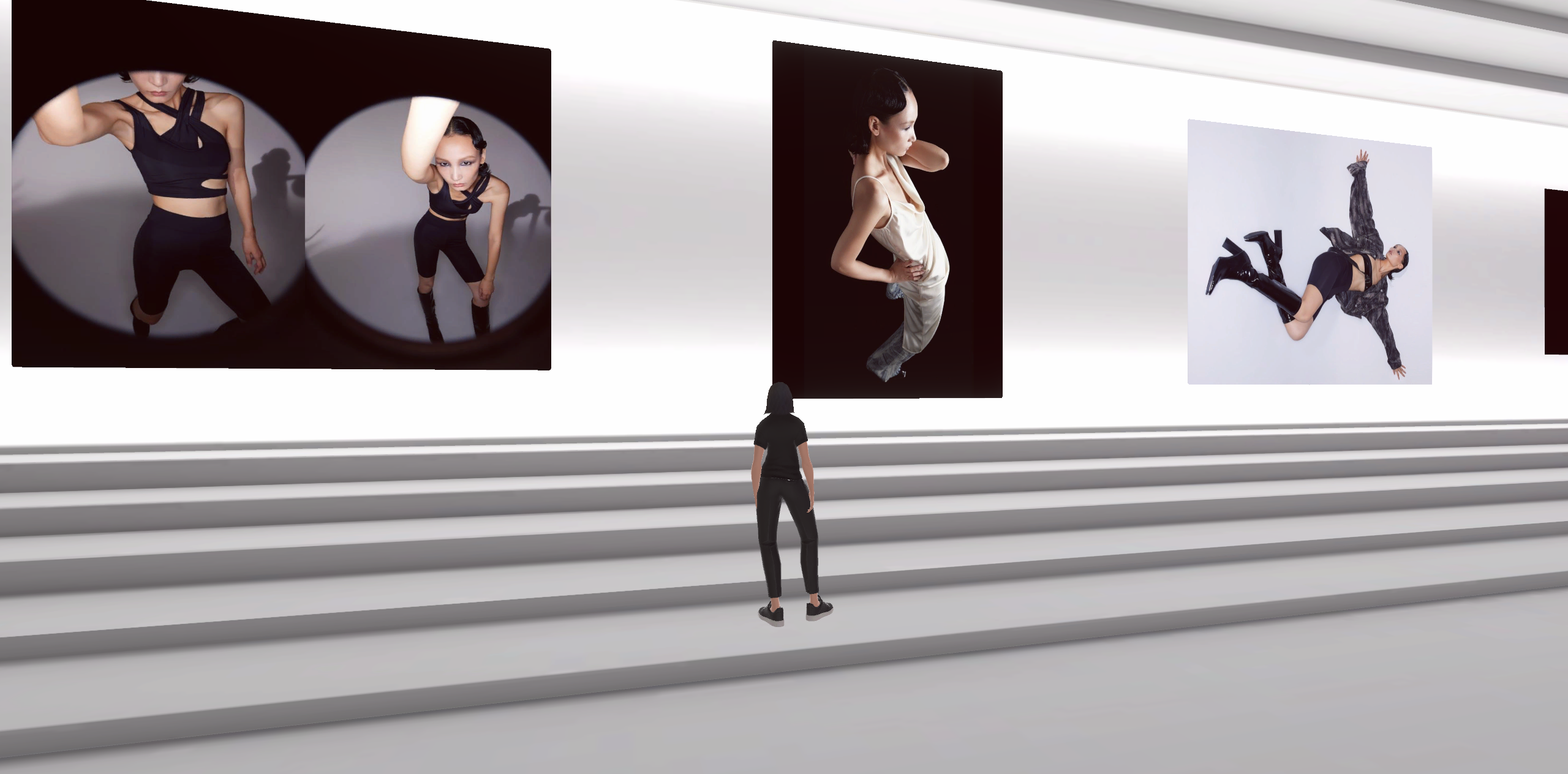MA Arts and Cultural Enterprise student, fashion buyer Irene Lau graduates with a distinction for her final thesis: researching business impact through a virtual fashion platform proposal called Meta-F.
Irene explains the potential business impact of new technology for fashion enterprise and how Web 3.0, the metaverse and AI are playing out in the industry.
@irenelau

How long have you worked in fashion buying and what drew you to this area?
I have been honing my skills in fashion buying almost 9 years now. It all started when I was in junior school and my friends noticed my knack for wearing fashionable clothes, despite having very limited pocket money from our parents.
After enrolling in fashion school for my bachelor's degree, I decided to pursue fashion buying as my career, with a focus on designer brands. I believe this platform provides the perfect opportunity to continue my greatest interest and develop my ability to curate and select the fashion collections with specific business objectives.
As a fashion buyer, I am hoping to leverage my creativity and business acumen to achieve positive outcome for the enterprise.
How did you start working and researching within Web 3.0 and metaverse?
Today, the Experience Economy concept has been upgraded. Physical experience is no longer as powerful as it once was; we have moved beyond physical locations and are now communicating and shopping online. The experiences that consumers are looking for are not just the installations and services they receive in real life.
In the age of digitalisation, e-commerce happens on social media platforms such as Facebook, Instagram, TikTok, etc. Customers are provided with specific interactions and services virtually. These social media platforms have been identified as the proto-metaverses. And undoubtedly, COVID-19 has further pushed the world to interact digitally.
Not to mention, in terms of fashion buying, the actual procurement process can happen digitally without being physically located during fashion week under pandemic with travel restrictions listed by different countries’ governments. I wonder what will be next?
A hypothetical business proposal "Meta-F" is given for the creation of a metaverse platform with a fashion buying concept along with fashion education. The platform offers an unparalleled experience for fashion buyers and designers to immerse users in a world of creativity and innovation.

Why are fashion buying and the metaverse a good fit for each other?
As a fashion buyer, my focus is always on the business development and sustainability of brands, as well as discovering new talent and nurturing emerging fashion designers.
Through this project, I am exploring the future development of Web 3.0, metaverse and AI in fashion buying and seeking to provide insights into how the industry can adapt to new technology components.
It is important to know I do not mean moving the entire fashion buying process to the metaverse, but rather about how the fashion industry can engage with these new technologies to maximize business opportunities and enhance efficiency. This is an exciting time for the industry, and I am passionate about being at the forefront of these developments.
From your research, how engaged are fashion brands and designers with the metaverse for doing business?
Based on what we can observe, the fashion industry is already participating in the metaverse, such as Gucci's Metaverse. During my research, I spoke with the LVMH Prize Mentoring Director who pointed out that having a presence in the metaverse can benefit brands as a marketing strategy, making them appear avant-garde. However, for now, it remains challenging for fashion to fully exist on the metaverse due to current technological limitations.
From this, I understand that the metaverse is primarily about brand marketing and user engagement through cutting-edge digital experiences. Consequently, fashion brands planning to launch on web 3.0 are targeting a different demographic from their existing customer base, which as a result can benefit to the retail business.
During my research, I have also interviewed the two young designers - Ms. Puilam Lau (Brand: NHOJ) and Mr. Ryan Li (Brand: Ryan Li), they see metaverse, AI and virtual reality (VR) as a new way to innovate the fashion industry ecosystem, slash costs for runway shows, and enable a more transparent flow of data via blockchain technology.
They are hoping via metaverse- they can have timeless travel to fashion masters’ studios and meet a mentor with forward-thinking outlook and expansive industry expertise to guide them in combining invention with profitability. However, physical formats are still necessary for intimacy. The overall goal is to have a globally connected vision for diversity, creativity, and inclusivity in the future of the metaverse.

How can virtual experiences compete with designers, brands and buyers traditionally or physically interacting with each other and with ideas, designs, materials?
While physical interactions will always play an important role in the fashion industry, virtual experiences can offer a complementary and innovative approach to designing, showcasing, and selling fashion. It offers new and unique opportunities for engagement and creativity.
The metaverse, for example, allows for virtual fashion shows that can be accessed by anyone, breaking down the traditional barriers of exclusivity in the fashion industry.
Additionally, virtual experiences can allow designers and brands to experiment with new designs, materials, and ideas in a way that is more cost-effective especially with the AI technology and it is much more efficient than physical prototyping. Additionally, buyers can explore virtual showrooms and interact with products in a more immersive way.
Looking into the future of AI, it's clear that there will be an increasing prevalence of AI technology across various industries. For instance, we're already seeing brands like Levi's utilizing AI models, and photographers are beginning to leverage AI to generate their images. As AI continues to evolve, it's likely that it will have a significant impact on the way we approach design and creativity, leading to new and innovative interpretations of these fields. Overall, the speed and efficiency that AI brings to the table will undoubtedly play a crucial role in shaping the future of fashion industry.
What are the challenges for brands and designers in terms of extending their business models into the metaverse?
However, there are still challenges for virtual experiences to compete with physical interactions. In my hypothetical Meta-F project, the key difficulties are the visual fidelity, garments presentation, interaction functions and cryptocurrency payments system.
For example, physical interactions offer a level of intimacy and sensory experience that is difficult to replicate in the virtual world. Additionally, current technology constraints may limit the level of detail and complexity that can be achieved in visual fidelity, particularly when it comes to materials and textures.
What is the acceptable degree of fidelity that we have to reach? At this stage, we do not know. But users are unsatisfied from their experiences in current virtual showrooms from my interview with Printemps Paris womenswear buyer.
Despite these challenges, virtual experiences offer exciting possibilities for designers, brands, and buyers to explore and push the boundaries of fashion.
What's next for your Meta-F platform?
As a final remark, this research emphasizes that the metaverse in fashion is still in an early stage of development and that there will be many opportunities for the fashion industry to step into another era with a new ecosystem.
All of the fashion giants are interested in collaboration, such as Louis Vuitton, Gucci , Balenciaga and so on. Meta-F gives a clearer picture of the future impact of the metaverse on the fashion industry. The metaverse has great potential to change the relationship between businesses and customers by improving communication, brand promotion and sales.
As a fashion buyer, I am hoping to adapt to the needs of the future fashion retail industry and of course contribute my creativity combing with the AI technology, my fashion buying skills in fashion retail business.
How has MA Arts and Cultural Enterprise helped you develop your ideas and innovation?
The MA ACE programme offers a comprehensive and dynamic curriculum that enables my fellow classmates and me to build our projects from the ground up.
With a strong emphasis on research skills, I am able to identify and analyze cultural practices, as well as local and global challenges that can impact our projects. Additionally, I receive guidance on developing effective business models and plans, which are essential for ensuring the sustainability of our projects. Through the program's focus on social impact and innovation, I am encouraged to think creatively and to consider how our projects can make a positive contribution to society.
It also challenges me to push beyond my comfort zones and think outside the box. It encourages me to take leadership on embracing new ideas in the fashion industry. It makes me to network with professionals from diverse backgrounds and cultures, fostering a dynamic and inclusive community.

